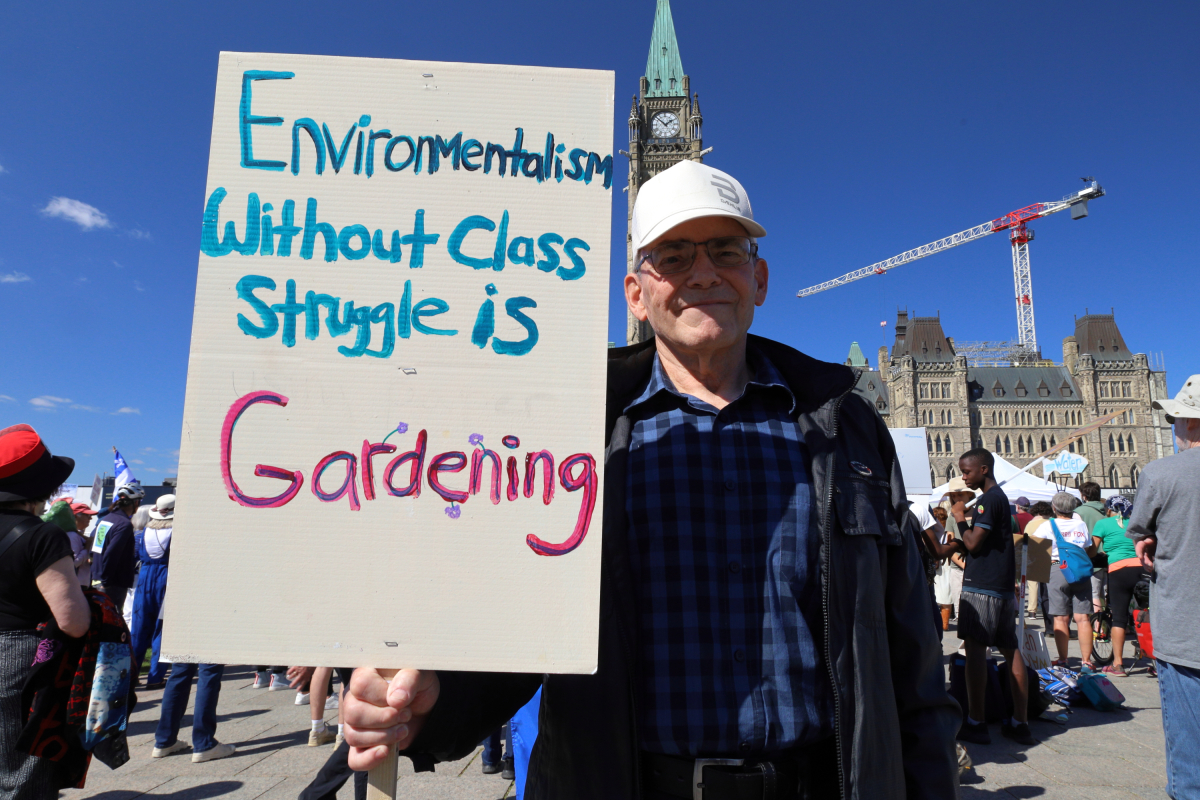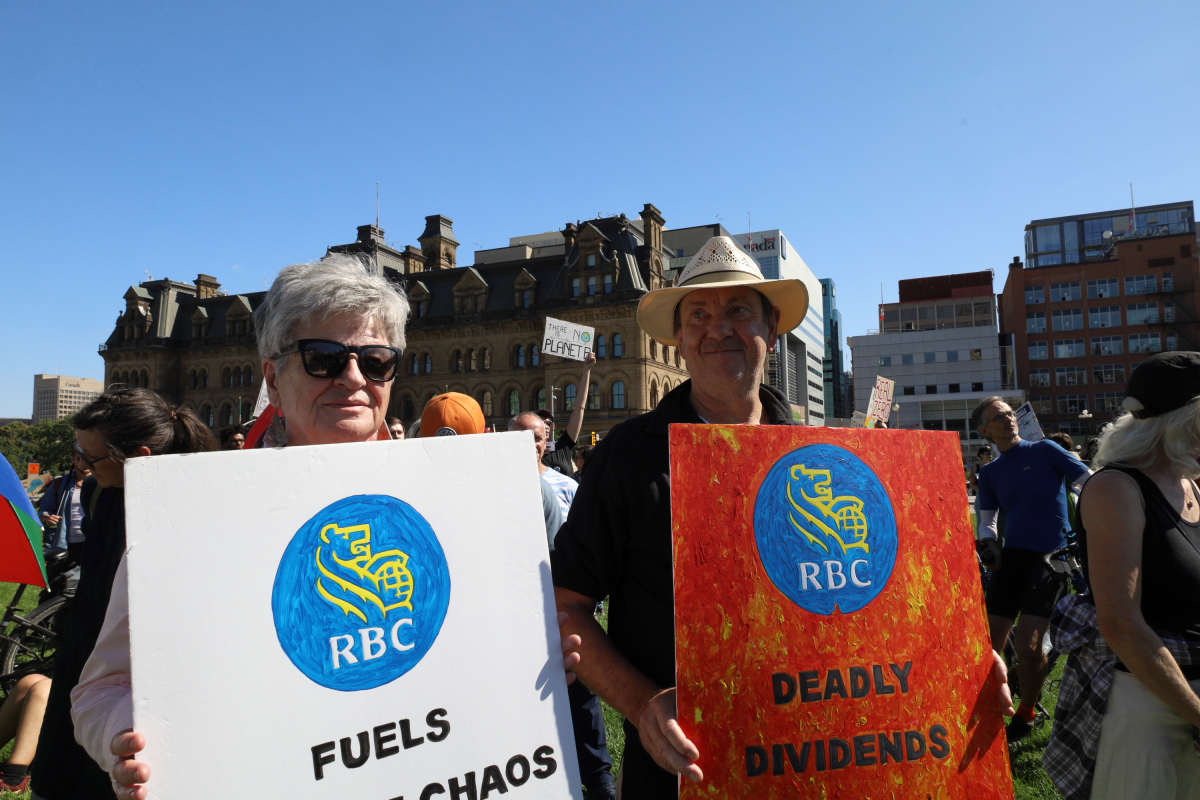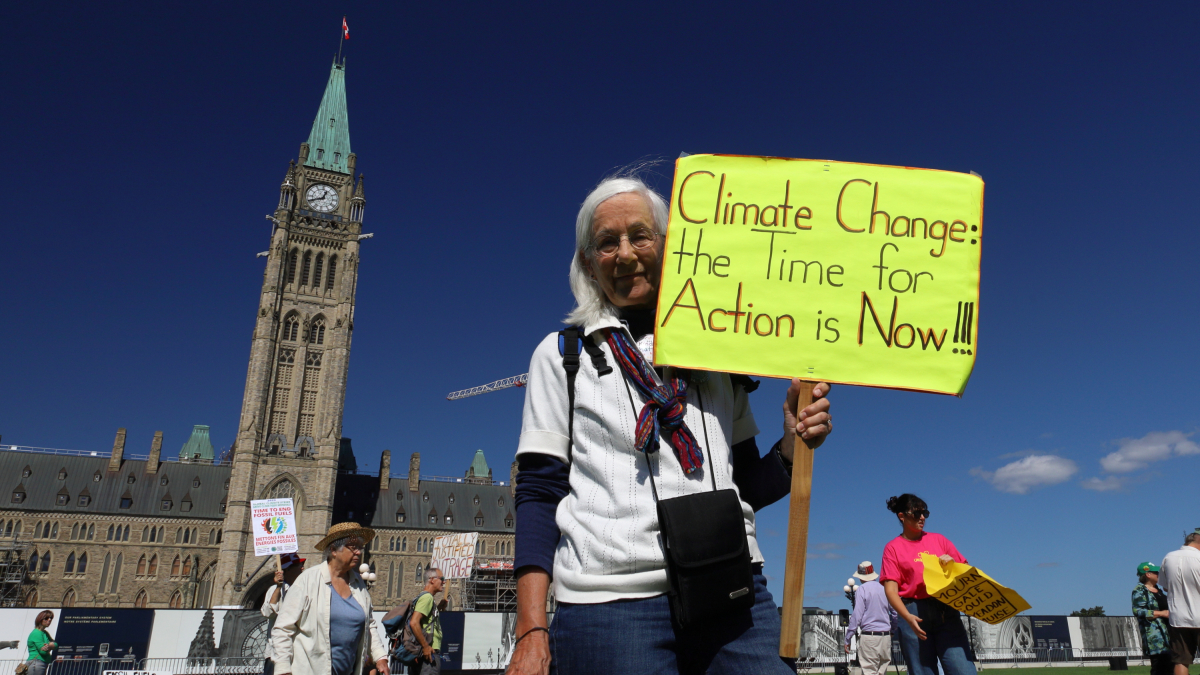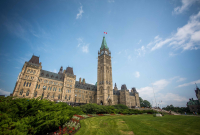Support strong Canadian climate journalism for 2025
Ottawa residents showed up outside Parliament to crank up pressure on politicians and demand an end to fossil fuels three days before MPs return to the House of Commons for the fall session.
“I'm here to ask governments to take action for climate change,” said 22-year-old Yen Tee at the climate strike organized by Fridays for Future on Parliament Hill.

“We are very privileged to be in a country where our voices can be heard, and you're supposed to represent our interests and our needs,” said Tee, when asked what message she has for Canadian politicians. “So I would like you to be worthy of that privilege of representing people.”
People around the world are demanding a fast and equitable end to fossil fuels at more than 400 actions, marches, rallies and events taking place between Sept. 15 and Sept. 17.
Approximately 50 actions are taking place across Canada in the days before MPs return to Parliament. The global actions aim to put pressure on world leaders before the United Nations General Assembly and Climate Ambition Summit next week in New York.
Hundreds of people young and old gathered on the sunny September Friday for an afternoon of speeches and music.
“I’m here for my babies,” said 36-year-old Annika Heywood. “I have a two-year-old and a six-month-old, and this shouldn't be their mess to clean up.” Her six-month-old was along for the ride.

“We need to make changes now … to make sure they can have a healthy, happy life,” said Heywood, holding back tears.
“We have to change things. We have to put restrictions on fossil fuels and make the world better.”
Many attendees are old enough to remember a time when the summers weren’t so hot and extreme weather wasn’t so common, said 70-year-old Theresa Peluso.
“This sign is five years old and … it's the same message today,” said Peluso, brandishing a sign that read: Fossil fools — ruining our children's future. “It's frustrating.”

It is a well-established scientific fact that burning fossil fuels is the primary driver of climate change, “but the big companies, multinationals are putting out a lot of propaganda so that they can just continue the status quo,” said Peluso. “There's a lot of greenwashing. They're doing some token gesture, but it amounts to nothing, so it's just more business as usual.”
Peluso is a retired elementary school teacher and is using her remaining energy to do what she can by sitting on environmental committees and associations and pushing for tangible action on the local level — for example, protecting wetlands and forests from development and promoting active transportation.
As an educator, she thinks more emphasis should be placed on media literacy so people can critically assess information from different sources, given the rampant disinformation on a range of topics, including climate change, that some organizations spread.

“We're not going to change things because we do a little bit of composting or a little bit of recycling,” said Ron Coristine. “I've been doing that all my life. I've been hearing about climate change since I was in my 20s. I'm 75, and I'm angry now that large corporations who have the rights of a person have no responsibilities towards any of us, and they're killing us.”
Businesses aren’t the only ones in the crosshairs of climate strikers. Governments need to take action, too, said 21-year-old Carina Harb.
“We really need collective action from everyone across government, not just like the Green Party or NDP or Liberals, like everyone across the government,” said Harb. “I'm really hoping to see that change happen.”
The same day concerned Canadians attended climate rallies across the country, federal Conservative Leader Pierre Poilievre held an “axe the tax” rally in Whitehorse, a few weeks after wildfires caused his team to reschedule a handful of anti-carbon tax rallies in B.C. and Yukon.
Green Party deputy leader Jonathan Pedneault addressed the crowd at Parliament Hill, along with youth, a papier-mâché Justin Trudeau head, MPPs Joel Harden and John Fraser, as well as a representative each from the Canadian Labour Congress and the Professional Institute of the Public Service of Canada.

Many people had signs calling out RBC's role in financing fossil fuels, with slogans like "deadly dividends" alongside the bank's logo. In 2022, RBC was the world's top fossil fuel funder with US$42.1 billion going to oil, gas and coal companies.
"I would like to see our government stop subsidizing the fossil fuel industry in this country because they still give much of our many, many millions — if not billions — of dollars every year of my taxpayer money and your taxpayer money to prop up a dying industry, a dying destructive industry," said 74-year-old Paula Halpin.
About a dozen leaders from the Canadian Association of University Teachers (CAUT) attended the event, including president Peter McInnis and vice-president Robin Whitaker. CAUT represents 72,000 teachers, researchers, librarians and general staff at Canada’s public universities and colleges.
Like other trade unions, CAUT members are concerned about a just transition to a low-carbon economy and the need to bring everyone along, said Whitaker.
“I come from a fossil fuel-intensive economy in Newfoundland and Labrador and I'm very concerned that as we transition, we aren't leaving behind workers in that sector and their families,” said Whitaker.
There’s a need for governments and employers — in CAUT’s cause, universities and colleges — to step up, said McInnis, who lives in Nova Scotia.
“The current climate denial and discussions about carbon taxes and imposition is just getting in the way of the actual event, and you can't deny with half of the country closed down to forest fires, others having floods … and now hurricanes, this is climate emergency,” he added.
“We believe in the process of scientific inquiry and expert knowledge and so we can't have climate deniers refuting the obvious crisis that we're in, collectively.”
Natasha Bulowski / Local Journalism Initiative / Canada’s National Observer






Comments